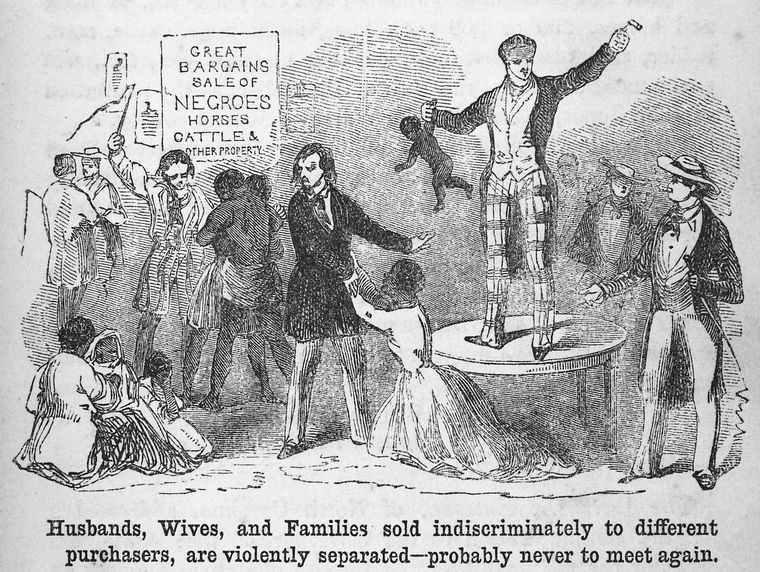This Mother’s Day, at Friendship Park, the only federally established meeting place along the US and Mexican border, mothers and their children separated by the border fence had an opportunity to meet and embrace one another. It was a special occasion, since for a rare and brief time the gate was scheduled to be opened so that separated families could actually communicate and touch one another with no metal boundary between them. Those waiting pressed hands and faces against the mesh, leaning in to kiss one another, often tearfully, through the fence that divided them. Usually, such a tentative encounter, hands pressed against metal, is the most these separated families can hope for (read more here).
One mother interviewed stated: “It means a lot because even though we are separated from our children, the ones that are left, on the other side, we still find a way. There is no border, the love of the mom, between moms and children, we don’t know no fences, we don’t know no borders,” said volunteer and mother, Ixchel Solano, according to this report from San Diego 6.
This history of political upheaval is always the history of divided families – thus it has been from ancient times until today. Anyone educated in the classical tradition has had a chance to weep over the sorrow of Aeneas separated from his wife in the sack of Troy, to mourn with King David at his family torn apart through his sons’ civil war. We see the extent to which the destruction of Troy and the self-immolation of the Davidic dynasty were the result of choices made by the powerful men involved, but we grieve all the same, because this is what tragedy is about.
Unfortunately, a large segment of the contemporary populace is either unversed in the classical tradition, or unwilling to pull an Arthur Miller and extend the pathos of tragedy to those who are not ancient warlike kings, and whose choices had to do not with a desire to steal someone else’s wife, but simply to find safety for one’s children. The comments section on news and photos of the Mother’s Day event reiterated the same tired refrain: they made their own choice – what part of illegal do they not understand? – “just more BS propaganda to make you feel sorry for them.” Never mind that these are self-proclaimed libertarians who disdain government intervention, and ought to question the whole association of legality with morality; never mind that these are the same people who proclaim the gospel of family values; never mind that it’s an actual news item, a story of real human lives, not some fabricated propaganda. And that’s not even bringing in the Christian reality that we have a deep scriptural and moral tradition admonishing us to accept the foreigner, to invite the alien into our homes, for we too once were strangers in a strange land. I would venture to say, even, that to be a Christian is always to be a stranger in a strange land. It is to know no borders.
What I found reading the story of the Mother’s Day event, and perusing the comments, was part of a larger motif of disdain for the concerns of families that are not conventionally white, western, middle class, and “respectable.” I have written elsewhere of the church’s obligation to acknowledge the needs of what, for the sake of brevity, I term “unconventional families.” Unconventional families don’t fit neatly into the perfect paradigm of “good Catholic family” which is frequently put on a pedestal. Perhaps no family does, but some at least play the part well, and are rewarded for it in Catholic circles: “let’s help this good Catholic family in hard times,” we say, but what about all the other families that don’t fit the poster-perfect bill? How about bad Catholic families, or families that aren’t Catholic, or families that are kind of smelly and weird?
We see this repeatedly when it comes to disregard for black families separated due to unjust incarceration, Muslim families separated through forced immigration, even poor white families separated by CPS because they failed to live up to our contemporary bourgeois standards of tidy respectability. Yes, some families are toxic, and sometimes separation, and even divorce, are a blessing. CPS often does great and heroic work. But too often the culture in general lacks a fundamental respect for the security and sanctity of the domestic space, a respect that is due even if it’s a small space, a mobile space, a messy space, a poor space, a space different from ours, a strange space, a space occupied by people who don’t match up with our modern notions of “family” as “ nuclear family.”
When we dismiss young men especially, suggesting that the fathers, husbands, and sons of immigrant families be forcibly sent back to fight terrorists, we reveal just how little we value men unless they are the kind of men approved in this fetishized western white family ideal. This is a form of militarist misandry that is problematic across the board, and revealed in our tolerance of a draft for our sons, but just as misogyny is accentuated when directed at non-white women, so also this disregard for male lives becomes pronounced when discussing brown or black men, even poor men. The systematic dehumanization of the black male has been a problem repeated over generations, from the times of slavery until today, and while we laud the value of fathers in respectable bourgeois households, we ignore the reality that depersonalizing and disenfranchising black men in a capitalist culture has a fracturing effect on families, and that this fracturing carries on from one generation to the next. Studies have shown just how much personal trauma is passed on from parents to children (something else we ought to learn from classical tragedy) – but when it comes to poor or racially other or immigrant families, we somehow imagine that bad choices or toxic domestic situations were created in some kind of social vacuum. The same man who is in a bad mood and drinks too much microbrew on a Friday night, because his boss didn’t respect him at work today, may well turn around and deride the bad decisions of other men who are repeatedly, often violently disrespected, their entire lives.
We elevate images of motherhood in perfect white middle-class homes, and even those of us who are white and middle-class are exhausted – or, sarcastically amused, depending on our mood – by this reiteration of images of what motherhood ought to be. But what about mothers who are poor, what about mothers who are racially other, or immigrant?
And, of course, though it may be a cliche: what about the children?
In novels and histories we admire parents who make hard decisions, even illegal decisions, for the sake of family safety. We like stories of border escapes, smuggling, espionage, trickery, when it’s for the sake of saving lives. We even like stories of completely amoral illegal attempts made by criminal groups interested solely in gain. If we can root for the bandit – if we can pity the man-slaughtering adulterous King David for the disintegration of his regime and the loss of his Absalom – why can we not extend the same pity to poor women weeping for their children, when the only “bad choice” they made was their one, difficult, heart-rending opportunity to provide a life of health, safety, and security for their children? “Family values” should not be a first-world privilege.
Image credit: New York Public Library, “Five hundred thousand strokes for freedom ; a series of anti-slavery tracts, of which half a million are now first issued by the friends of the Negro.” by Armistead, Wilson, 1819?-1868 and “Picture of slavery in the United States of America. ” by Bourne, George, 1780-1845This work is in the public domain in the United States because it was published (or registered with the U.S. Copyright Office) before January 1, 1923. https://commons.wikimedia.org/wiki/File:Slavery19.jpg













